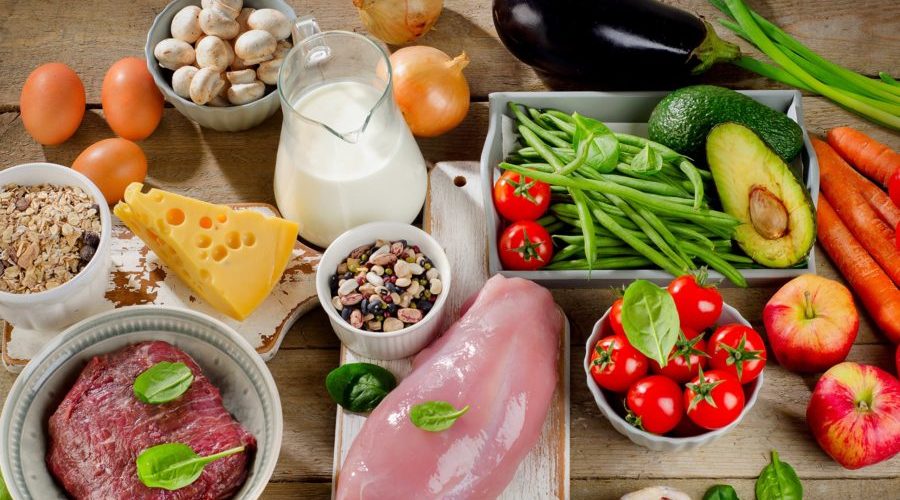Almost everybody knows or should know that our muscles are made up of protein. Protein is an important element of every cell in our body. Like water, protein makes up a large part of our body. Our hair and nails are made of mostly protein. Our body uses protein to build and repair tissues to make enzymes, hormones, and other body chemicals.
Protein is an important building block not only for our muscles but bones, cartilage, skin, and blood. With that said, if you don’t get enough protein in your diet you cannot build muscles, it’s that cut and dry. You have to provide the body the fuel it needs to build muscle. The body uses protein for so many other more important life assisting functions in the body….. the last thing it wants to do is build muscle with it.
So, you better be getting enough protein to assist with other bodily functions so your body can then put itself in a position to add muscle later on after your hard work in the gym. On the other hand, eating more protein without stimulating the muscles through exercise will not make your muscles bigger either. You must put in the hard work in the gym. I recommend .75 to 1 gram of quality protein per pound of body weight.

For example, I weigh 200 lbs so to give my body the fuel it needs to build muscle I should get about 150-200 grams of protein a day. You don’t need any more than that…… for several months I consumed more than that and I did not see any added muscle gains just gains in my body fat percentage!!!
Protein is categorized as a “macronutrient” just like fats and carbohydrates. But unlike fats and carbohydrates, the body does not store protein, so there is no storage to go to when protein is needed. What is not needed the body will excrete as waste. Again, protein does not build up in the body so you should eat protein at regular intervals throughout the day to build muscle effectively. I suggest eating 6 small meals a day instead of the traditional big three and consume a good quality source of protein with each of them.
Typically, proteins are not used by the body as a primary energy source. The body’s primary energy source is carbs when they are available. But when you do not get enough carbohydrates in your body it has no choice but to use your valuable muscle building protein for energy which leaves your muscles high in dry unless you are getting 600 grams of protein a day!!
So with that said be sure you are getting at least 1.5 grams of carbs a day for every pound you weigh. It is believed the best protein sources are derived from animal sources such as meat, fish, eggs, and milk.
The best absorbing proteins are classified as having a high biological value (BV). The Biological Value (BV) is a scale of measurement used to determine what percentage of a protein source is utilized by the body.
So, the BV refers to how well and how quickly your body can actually use the protein source. Theoretically, the highest BV of any food source is 100%. Whey protein concentrate has a BV of 104 while an egg is 93.7. Below is a list of various sources of protein and their respective ratings.
| Protein Ratings | |
| FOOD | PROTEIN RATING |
| Eggs (whole) | 100 |
| Eggs (whites) | 88 |
| Chicken / Turkey | 79 |
| Fish | 70 |
| Lean Beef | 69 |
| Cow’s Milk | 60 |
| Unpolished Rice | 59 |
| Brown Rice | 57 |
| White Rice | 56 |
| Peanuts | 55 |
| Peas | 55 |
| Whole Wheat | 49 |
| Soy beans | 47 |
| Whole-grain Wheat | 44 |
| Peanuts | 43 |
| Corn | 36 |
| Dry Beans | 34 |
| White Potato | 34 |

As far as sources of protein created in the lab are concerned, here is a short list of some protein sources you can find in supplements common today. See how they compare to the natural sources listed above:
| Protein Ratings | |
| PROTEIN SUPPLEMENT | PROTEIN RATING |
| Whey Protein Isolate | 159 |
| Whey Protein Concentrate | 104 |
| Casein | 77 |
| Soy | 74 |
